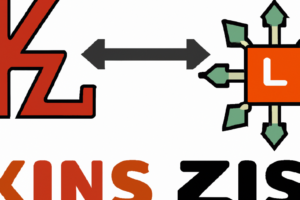
Two major banks are leveraging blockchain technology to streamline and reduce costs in settling foreign exchange transactions.
Amidst the hype surrounding cryptocurrencies, the potential of blockchain technology to revolutionize global capital markets has been widely discussed. While the initial excitement may have waned, British bank HSBC and US lender Wells Fargo are breaking the trend by embracing blockchain to settle currency trades. By leveraging a shared private ledger, the banks aim to improve efficiency, reduce costs, and minimize risks associated with foreign exchange transactions.
How are HSBC and Wells Fargo using blockchain for currency trades?
HSBC and Wells Fargo have partnered to settle foreign exchange transactions using blockchain technology. The two banks utilize a private ledger to track and manage trades involving US dollars, sterling, euros, and China's offshore yuan. This approach enables them to have real-time access to the same ledger, reducing the possibility of discrepancies and enhancing transparency. Additionally, settling trades through blockchain technology is particularly beneficial for currencies like the renminbi, for which existing settlement mechanisms are limited.
What are the advantages of blockchain technology for the banks?
By adopting blockchain for currency trades, HSBC and Wells Fargo have experienced easier, faster, and cheaper settlement processes. Mark Williamson, global head of foreign exchange and commodities partnerships and propositions at HSBC, highlights the cost savings achieved through this infrastructure compared to traditional methods. According to a survey by Accenture, blockchain has the potential to reduce infrastructure costs for the world's largest investment banks by up to $12 billion annually. The operational efficiency and cost reduction offered by blockchain technology make it an attractive solution for financial institutions.
What other applications does blockchain offer?
HSBC has also been using blockchain technology to settle foreign exchange transfers internally. Since 2018, the bank has successfully settled $6.7 trillion in trades across 18 different balance sheets and 13 currencies. This demonstrates the scalability and versatility of blockchain in facilitating secure and efficient transactions within the financial services industry. Furthermore, many companies are exploring the use of blockchain for cross-border money transfers and remittance, indicating a growing interest in its potential applications.
What are the challenges and limitations of blockchain adoption?
While HSBC and Wells Fargo's commitment to blockchain technology is commendable, it is important to acknowledge the challenges faced by the wider digital assets industry. Several significant blockchain projects have been abandoned due to technology and governance issues. For instance, the Australian stock exchange dropped its plan to upgrade clearing and settlement processes using blockchain, and AP Møller-Maersk discontinued its blockchain-enabled supply chain project with IBM, citing commercial viability concerns. These setbacks highlight the need for further development and maturation of blockchain implementations.
HSBC and Wells Fargo's adoption of blockchain technology for currency trades marks a significant step towards mainstream acceptance. The benefits of improved efficiency, cost reduction, and enhanced transparency make blockchain an attractive solution for financial institutions. While challenges and limitations exist, the growing interest in blockchain and ongoing exploration of its potential applications suggest a promising future for this transformative technology in the financial services industry. As more companies embrace blockchain and gain hands-on experience, the path to widespread adoption becomes clearer.

Alejandro Rodriguez, a tech writer with a computer science background, excels in making complex tech topics accessible. His articles, focusing on consumer electronics and software, blend technical expertise with relatable storytelling. Known for insightful reviews and commentaries, Alejandro's work appears in various tech publications, engaging both enthusiasts and novices.
Follow us on Facebook







